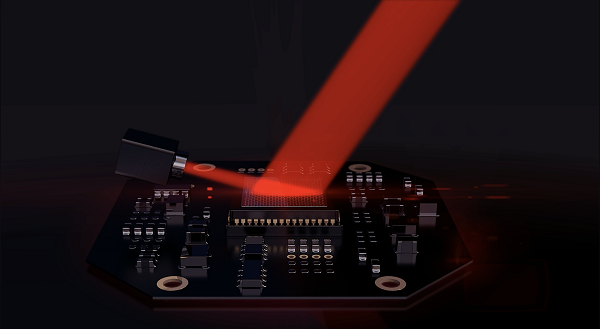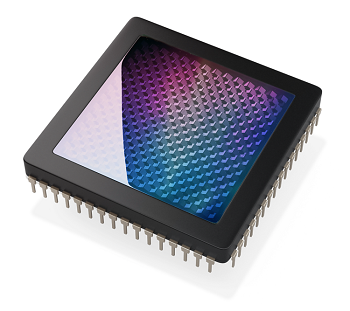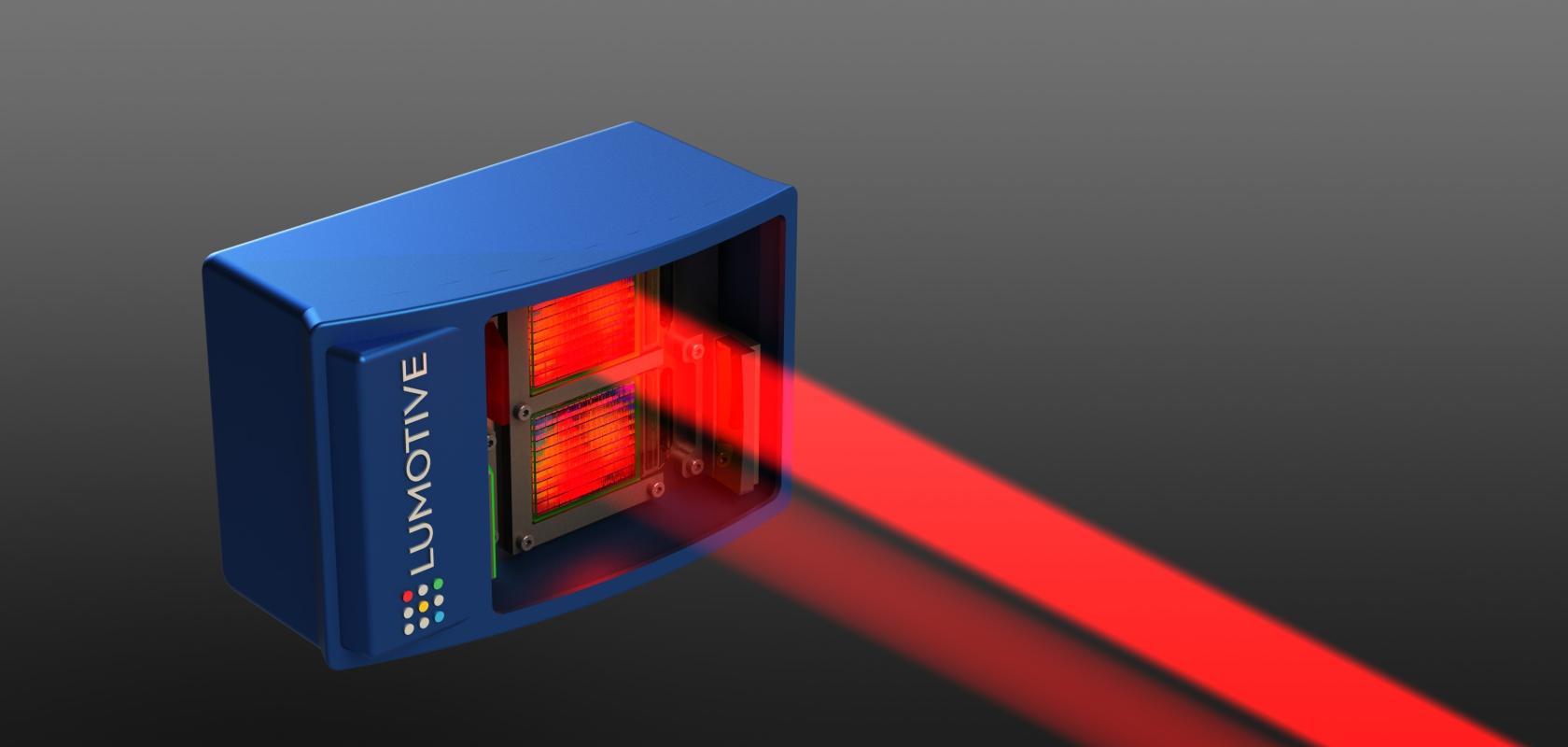Lumotive, a technology start-up funded by Microsoft founder Bill Gates, has introduced a disruptive beam-steering technology that it claims will significantly improve the performance, reliability and cost of lidar systems for the emerging self-driving car industry.
The start-up’s new system is based on liquid crystal metasurfaces and silicon fabrication, which according to Lumotive enable it to achieve unmatched levels of manufacturing efficiency while simultaneously delivering unprecedented range, resolution and frame rate. The system will initially be used to target the robo-taxi market, and will be available to select customers for beta testing in the third quarter of 2019.
Lidar has emerged as a key 3D sensing technology by enabling autonomous driving systems as well as so-called ADAS, or Advanced Driver Assistance Systems – such as systems for lane keeping, automatic braking and collision avoidance. Lidar systems determine range by emitting laser light pulses and measuring the round-trip flight time for those pulses to travel to and reflect back from objects. These pulses are scanned across the lidar’s two-dimensional field-of-view to create a 3D perceptual map, or ‘point cloud,’ of its surroundings. Lidar has proven critical for autonomous vehicles because the technology can accurately locate objects to within a few inches at ranges of hundreds of yards.
Currently, most lidar systems rely on mechanical scanning, which according to Lumotive not only limits the performance of existing systems, but also suffers from poor reliability, cost and form factor. Past lidar solutions have included bulky spinning assemblies, while newer breeds of the technology make use of MEMS mirrors or optical phased arrays. Lumotive commented that both of these recent approaches lack performance due to the small optical aperture of MEMS mirrors and the low efficiency of phased arrays.
In contrast, the start-up’s ‘revolutionary’ new beam-steering technology uses liquid crystal metasurfaces (LCMs) — semiconductor chips that steer laser pulses based on the light-bending principles of metamaterials. This is a first for lidar, according to the firm.

Lumotive claims its beam steering chip enables lidar systems with unprecedented range, resolution and frame rate. (Image: Lumotive)
‘The LCM chip is the holy grail of lidar, finally enabling beam steering using a semiconductor chip but efficiently and over a large optical aperture that’s hundreds of times larger than a MEMS mirror or an optical phased array,’ said Lumotive co-founder and CTO, Dr Gleb Akselrod. ‘Our large aperture is like having a bigger telescope, allowing us to see dramatically farther than other systems.’
In addition to this large optical aperture, which is 25 x 25mm, delivering long range, the distinct performance advantages of Lumotive’s new system include: a 120-degree field-of-view with high angular resolution; and fast random-access beam steering. The technology also benefits from the economics of semiconductor manufacturing to enable low cost systems.
‘Lumotive’s solution is ideal for automakers and Tier-1s seeking safer yet more cost-effective perception solutions for their vehicles,’ commented Lumotive co-founder and CEO, Dr William Colleran. ‘Our lidar sensors benefit tremendously from the unique attributes of beam-steering LCMs which simultaneously offer large optical aperture, wide field-of-view and fast scanning while having no moving parts. LCMs deliver the combination of performance and commercial viability that will finally eliminate barriers to adoption of lidar for both ADAS and autonomous vehicles.’

A liquid crystal metasurface (LCM) is at the heart of Lumotive's new lidar system. (Image: Lumotive)
In addition to its cost and performance advantages, Lumotive’s LCMs can be integrated into small form-factor systems, appealing for other applications in industrial and consumer sectors which can benefit from lidar.
Professor David Smith of Duke University in Durham, North Carolina, a pioneer in metamaterials research, commented on the new innovation: ‘Lumotive’s beam-steering technology is the culmination of years of fundamental research into controlling electromagnetic waves using artificially structured metasurfaces. In the past, these concepts have been applied to radio waves, but Lumotive is the first to develop dynamically tuneable metamaterials for optics. Their development is a tremendous advance in metamaterials research, as well as a breakthrough technology that addresses pressing and unmet needs in lidar and other optical systems.’
Market Opportunity
Although lidar systems will be broadly deployed to enhance perception in diverse markets, including for robots, drones and industrial automation, most observers see lidar’s largest near-term application in automotive markets where the technology will enable ADAS as well as fully autonomous driving systems that will first be deployed by self-driving taxi services, commonly called robo-taxis, like those under development by Argo AI, Aurora, May Mobility, Uber and Google’s Waymo subsidiary.
‘The lidar markets dedicated to Advanced Driver Assistance Systems (ADAS) and robotic car applications are showing significant growth between 2018 and 2024, from $721 million to $6.3 billion,’ said Dr Alexis Debray, technology & market analyst at market research firm Yole Developpement. ‘At Yole, we estimate the CAGR will reach almost 45 per cent during this period. We expect strong growth of lidar within the transportation segment for both robotic vehicles and ADAS applications. A Gates-funded startup like Lumotive, with unique metamaterials-based technology, is well-positioned to serve this growing market.’
It's not just Lumotive that has recieved significant finanical backing to develop lidar technolgies. Innoviz Technologies, a developer of solid-state lidar sensors, recently announced its raising of $132 million in series C funding, which will be used to accelerate production, expand its team, and further R&D efforts. Meanwhile, Ouster, which develops semiconductor-based lidar sensors, has gained $60 million in further funding, which it will use to accelerate technology development and expansion into new industries and geographical regions.
Innoviz’s new funding total now amounts to $214 million, while Ouster’s total amounts to $89 million. Both firms received awards at the Consumer Electronics Show at the start of the year. Innoviz Technologies was awarded with the 2019 CES Best of Innovation honour for its InnovizOne automotive-grade solid-state lidar device, while Ouster won an Innovation award in the Vehicle Intelligence and Self-Driving Technology category for its multi-beam flash lidar sensor, the OS-1-128.


